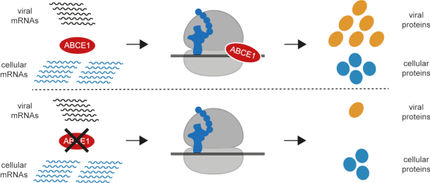UC Riverside Researchers Discover Model Organism For Studying Viruses that Affect Humans
Simple nematode has similar virus-fighting mechanism as humans and can be used in research
Advertisement
Researchers at the University of California, Riverside have discovered that a simple worm, called C. elegans, makes an excellent experimental host for studying some of the most virulent viruses that infect humans. The researchers published their findings in Nature. The paper reflects a major step forward in the study of how some of the world's most virulent viruses, such as West Nile, SARS, Ebola and hepatitis C interact with their hosts.
For years researchers throughout the world have studied C. elegans because many aspects of its biology, such as genetics, development and the workings of neurons, mirror the biology of humans. However, no viruses were known to infect the millimeter-long roundworm so it was not used as a model for studying viral infections.
The Nature paper now shows that UC Riverside researchers have developed a strain of the worm, C. elegans, in which an animal virus could replicate, allowing them to map the delicate dance of action and reaction between virus and host.
The UCR team has shown that virus replication in the worm triggers an antiviral response known as RNA silencing or RNA interference (RNAi). RNAi specifically breaks down the virus' RNA. Virus RNA creates proteins that allow the virus to function. The virus responds by producing a protein acting as a suppressor of RNAi to shut down the host's antiviral response. Virus infection did not occur when the viral RNAi suppressor was made inactive by genetic mutations in the host system.
C. elegans' RNAi system is considered a "blanket system," meaning that it has parallels in humans, making the worm model a valuable tool in studying the way viruses interact with hosts. This tool may speed the discovery of treatments for virus-caused diseases that plague humans.























































